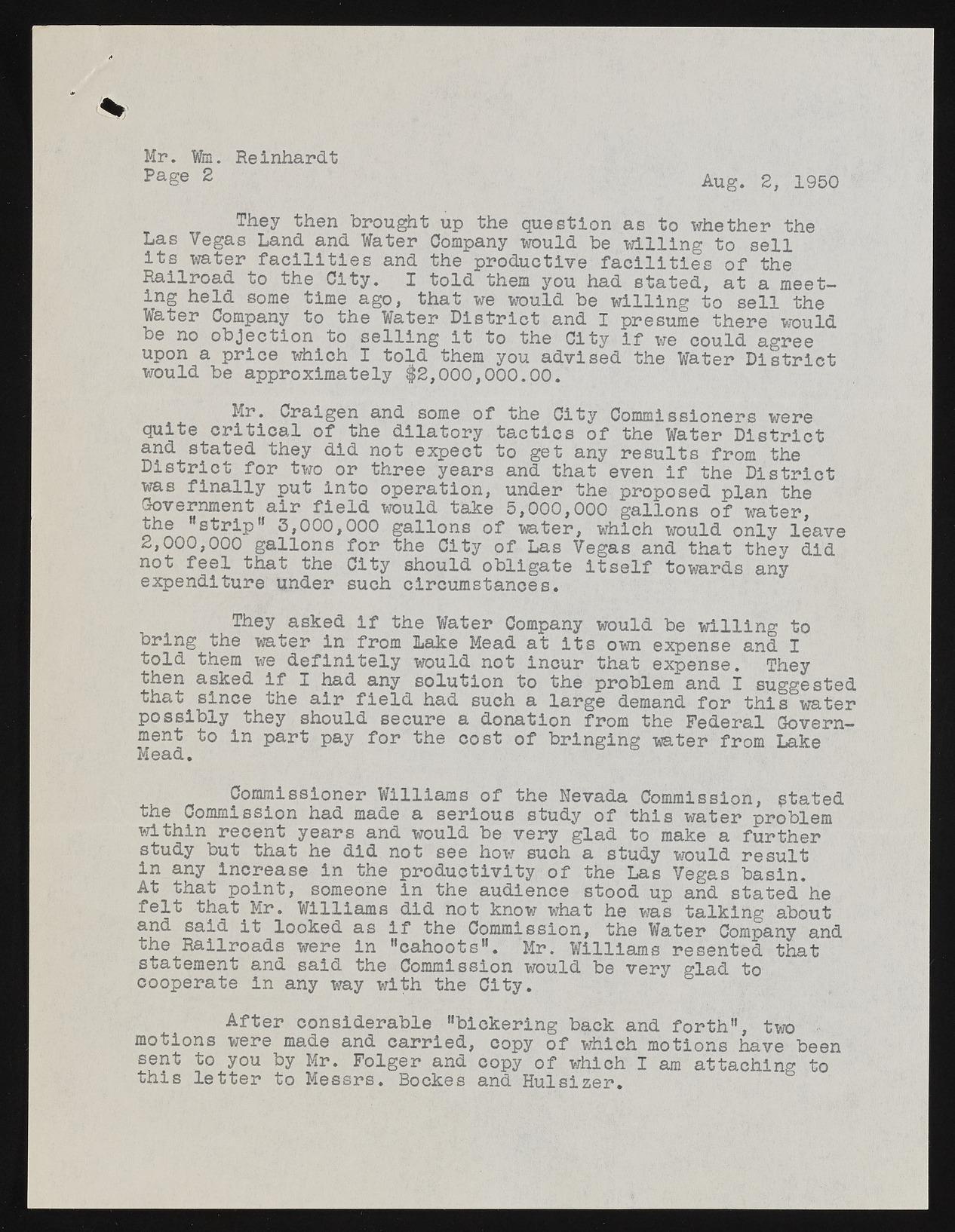Copyright & Fair-use Agreement
UNLV Special Collections provides copies of materials to facilitate private study, scholarship, or research. Material not in the public domain may be used according to fair use of copyrighted materials as defined by copyright law. Please cite us.
Please note that UNLV may not own the copyright to these materials and cannot provide permission to publish or distribute materials when UNLV is not the copyright holder. The user is solely responsible for determining the copyright status of materials and obtaining permission to use material from the copyright holder and for determining whether any permissions relating to any other rights are necessary for the intended use, and for obtaining all required permissions beyond that allowed by fair use.
Read more about our reproduction and use policy.
I agree.Information
Digital ID
Permalink
Details
More Info
Rights
Digital Provenance
Publisher
Transcription
Mr. Wm. He inhardt Page 2 Aug. 2, 1950 They then brought up the question as to whether the Las Vegas Land and Water Company would be willing to sell its water facilities and the productive facilities of the Railroad to the City. I told them you had stated, at a meeting held some time ago, that we would be willing to sell the Water Company to the Water District and I presume there would be no objection to selling it to the City if we could agree upon a price which I told them you advised the Water District would be approximately $2,000,000.00. Mr. Craigen and some of the City Commissioners were quite critical of the dilatory tactics of the Water District and stated they did not expect to get any results from the District for two or three years and that even if the District was finally put into operation, under the proposed plan the Government air field would take 5,000,000 gallons of water, the "strip" 5,000,000 gallons of water, which would only leave 2,000,000 gallons for the City of Las Vegas and that they did not feel that the City should obligate itself towards any expenditure under such circumstances. They asked if the Water Company would be willing to bring the water in from Lake Mead at its own expense and I told them we definitely would not incur that expense. They then asked if X had any solution to the problem and I suggested that since the air field had such a large demand for this water possibly they should secure a donation from the Federal Government to in part pay for the cost of bringing Mead. water from Lake Commissioner Williams of the Nevada Commission, ptated the Commission had made a serious study of this water problem within recent years and would be very glad to make a further study but that he did not see how such a study would result in any increase in the productivity of the Las Vegas basin. At that point, someone in the audience stood up and stated he felt that Mr. Williams did not know what he was talking about and said it looked as if the Commission, the Water Company and the Railroads were in "cahoots". Mr. Williams resented that statement and said the Commission would be very glad to cooperate in any way with the City. After considerable "bickering back and forth", two motions were made and carried, copy of which motions have been sent to you by Mr. Folger and copy of which I am attaching to this letter to Messrs. Bockes and Hulsizer.

